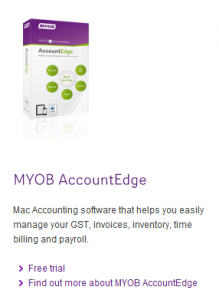
In a previous blog we talked about cheating and employing a cheater and how it can be easy to cheat in your coursework by plagiarising someone else’s work. We all know that people who cheat are really only doing themselves a disservice because they haven’t learned the coursework. That’s a big reason why we include tests at the end of each module in our MYOB training courses — to test our students’ knowledge of the coursework, like bank reconciliation.
Testing to Help Learn Properly
We don’t believe our students are cheaters, or that a test will stop someone from cheating (people always find ways to subvert the system if they really want to), but we do believe that it encourages people to really learn and understand the coursework in order to complete the test successfully.
These are the kinds of employees that companies and business owners are looking for and we try to ensure we give our students the opportunity to be the best and most successful they can be.
Free Business Courses for Unemployed Job Seekers
This raised another question for us about the kinds of courses available and the kinds of students they attract. You may already be aware that the Australian Government offers unemployed job seekers the opportunity to complete a business course for free.
This is certainly a great opportunity for those job seekers who, through no fault of their own, found themselves without work, and maybe even without the necessary skills to find gainful employment again. So the Australian Government offering courses to help people learn and develop the skills they need to re-enter the workforce is a great thing.
But in life, there are always those people who are willing to subvert the system. If these people didn’t exist, there’d be no war, we’d have no need for a police force, or a government — John Lennon’s Imagine would, effectively, have come true.
Cheating the System
But the truth is, people do try and subvert the system, everyday. Just recently we met a person who had completed a small business course, which was paid for by the government, and they told us how they had devised a plan to cheat in the coursework. Not only that, they also convinced their other classmates to do the same.
So each person copied content off the internet, or another person’s assignment, and submitted it as their own work. This defied the whole point of setting an assignment, which is to get the student to apply the work they’ve learned in class and demonstrate their understanding of it. By cheating, you’ve demonstrated nothing other than your knowledge of the copy and paste function on your computer.
Learning to Interpret Things
You’ve also missed out on a valuable opportunity to take the coursework and apply it to something yourself, and then receive feedback from a teacher. These are generally exercises that you’ll face in the real world as a business owner, and the point of taking a course is to prepare you for those situations and give you the knowledge you need to handle them. A key aspect of learning is to take in the facts your presented with and interpret them yourself.
The Problem with ‘Free’
Perhaps the reason those students who cheated were willing to do so was because they hadn’t paid for the course out of their own pocket. It was free, so what was the harm?
Steven Levitt and Stephen J Dubner are the authors of the hugely successful book Freakanomics. In the book they explore the hidden side of everything, which they say all comes back to economics because humans respond to incentives — and we’re presented with different incentives virtually everywhere we look.
For instance, there are numerous ways you are incentivised to be a good driver: you don’t get speeding tickets, you won’t lose points off your license, and your insurance company will give you a no-claim bonus. And those incentives each come with their own economic reward.
A person who cheats in a course they didn’t pay for doesn’t really stand to lose anything in economic terms — it didn’t cost them anything to attend the course in the first place, so if they don’t learn anything, they’re no better or worse off.
The Positives of Paying
For a person who paid to attend a course, however, they do have something to lose if they don’t learn anything — the money they paid for the course — and this is their incentive to work hard and make the most of the course; to get more bang for buck.
***
That’s why we offer lifetime access in our MYOB training courses. We know you want to make the most of the coursework, to ensure you’re getting the most value for your money and that you’re going to work harder, as a result. For that reason, alone, that’s what makes you more likely to succeed than those people who had a free ride — because you’ve got something to lose.
We all like something for nothing, but sometimes it comes at a cost. In this instance, there is a lot of truth to the expression, nothing ventured, nothing gained. If you don’t put up the money in the first place, you’ve got no incentive to gain anything as a result.


























